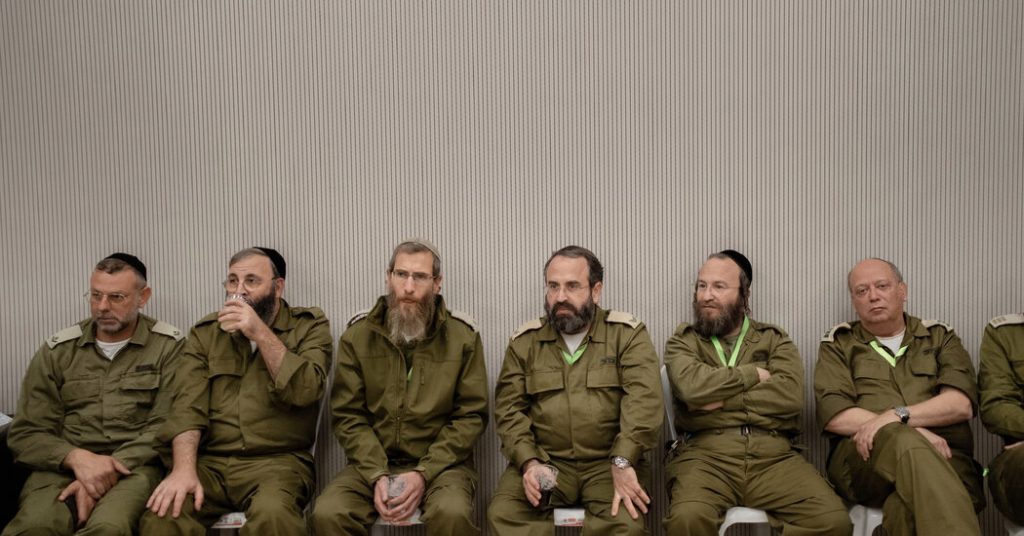Prime Minister Benjamin Netanyahu is facing a significant political challenge due to a disagreement within his coalition regarding whether ultra-Orthodox Jews should continue to be exempt from military service. This division threatens to collapse the coalition as secular and ultra-Orthodox lawmakers clash over the issue. If the exemption is abolished, the ultra-Orthodox members may walk out, while if it continues, the secular members may withdraw, potentially leading to new elections which polls suggest Netanyahu would not win.
The issue of ultra-Orthodox military exemptions has been a longstanding one in Israel, with resentment growing as their numbers increase. The recent Supreme Court decision instructing the government to suspend educational subsidies for seminary students who fail to answer call-ups has sparked outrage among the ultra-Orthodox community. This move is seen as a step towards mandatory military service for the ultra-Orthodox, leading to fears for the financial stability of their religious education system.
Soldiers returning from the Gaza conflict have increased scrutiny on the ultra-Orthodox exemption, with many questioning why they should risk their lives for a minority that does not serve in the military. While there has been a small increase in the number of Haredi men volunteering for military service, the Haredi leadership remains opposed to mandatory conscription, fearing it could disrupt their traditional way of life centered around Torah study in seminaries. The conflict between secular and religious factions in Israel has intensified since the Gaza war in October 2021.
The historical roots of the ultra-Orthodox military exemption lie in decisions made during Israel’s founding, where autonomy and privileges were granted to the ultra-Orthodox minority in exchange for their support. However, with the community’s population growing significantly, these privileges have become a point of contention among Israelis, including observant Jews who serve in the military. Numerous legal challenges to the exemption have been made, with the Supreme Court upholding a significant decision in 2017, though implementation has been repeatedly postponed.
Both secular and religious members of the government are engaged in discussions to find a compromise on the issue, with suggestions that a middle ground may be reached where a limited number of seminary dropouts would be required to serve. The threat of a financial crisis for Haredi schools has added urgency to the negotiations, with tens of thousands of student subsidies potentially at risk. While the Haredi leadership may choose to remain in the coalition for now to maintain influence, there are concerns about the potential consequences of a collapse, including the uncertainty of a centrist-led government taking power.
Overall, the political impasse surrounding the ultra-Orthodox military exemption in Israel reflects a broader societal divide over the role of religion in the state. As tensions between secular and religious factions escalate, the future of the coalition government remains uncertain, with the possibility of new elections looming if a compromise cannot be reached. Netanyahu’s political future hangs in the balance as he grapples with this challenging issue.













